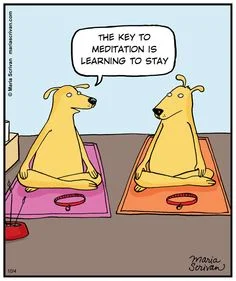“Knowing others is wisdom, knowing yourself is enlightenment.” Lao Tzu
This pronouncement by Lao Tzu first said around 500 B.C. has been echoed by others in various ways down through the centuries. The underlying truth, of course, is that the greatest wisdom lies within you. Once you have gained that knowledge you will understand the world in a more profound way. Knowing others, knowing things, is all well and good but to know yourself, to know what makes you “tick” is an essential prerequisite for all greater and deeper knowledge. It is the road to enlightenment.
It is interesting to look at people who have supposedly succeeded in life – that is, succeeded in a western world sense of the word. This worldview of success is based upon a materialistic measuring stick. Or, as Jesus said, by those in pursuit of Mammon. To onlookers it seems many of these folks have everything. They have big houses, multiple luxury cars, vacation homes, the very best clothes and money to spare. Yet they are frequently not content. Why? Because they never understood what was important in living an authentic life – they were misled and were chasing a false dream. The state of fulfillment in this world is not found in having things, it’s in the realm of doing things that counts - things that are transformative. Like making a difference, however small, as you live out your existence on earth. It can be simple acts of kindness like helping a child cross a street or as complex as leading a fundraiser for a new hospital. The ensuing effect upon you that these acts produce is quite amazing. The reward is moments of true contentment.
Perhaps the most convincing proof of this theory of achieving contentment is best illustrated by the ‘mega’ rich. Observe how many wealthy people turn to philanthropy late in life. It’s as if a light has gone off in their head and they finally figure out why they’re not happy. Suddenly they realize having all that money and material things doesn’t result in enduring peace. In fact, all their wealth often leads to deep anxiety, constantly worrying about protecting and keeping their possessions – a kind of angst that often leads to a soul destroying emptiness. It is only when they reach this new enlightenment that they realize that happiness requires interactions with other people or developing an interest in a worthy cause. They begin to develop reciprocal relationships that fulfill the deepest need of all people: liking others, and others liking you.
Ultimately it is love that we all seek. And, as Lennon and McCartney once wrote, “money can’t buy me love.” Without loving someone, and someone loving you, will lead to a kind of solitude best described as a living hell.
I contend that the sort of enlightenment of which Lao Tzu was speaking is essentially about arriving at a giving state of being. Knowing yourself better will help you in life. As Shakespeare noted, it may be the most important knowledge: “This above all: to thine own self be true.” And he was suggesting more than just selfish introspection and personal interest. The context of this quote is a scene in Hamlet where Polonius is giving advice to his son Laertius, who is about to depart on a trip to Paris. Polonius’ statement was meant to convince his son that by looking into and after himself he will be better equipped to know how to treat others. In other words, if you’re true to what’s good for yourself, loyal to your better interests, then you’ll be better prepared to interact with others in positive and honourable ways. On the surface it seems somewhat odd advice but it’s true: the path to happiness leads through yourself to others.
Finally, a near contemporary of Lao Tzu, good old Socrates has said “know thyself” and other similar pronouncements scattered throughout his dialogues.It is clear in reading his sayings that he too thought all knowledge begins from within oneself.For Socrates this was imperative.And he believed the subsequent desire to achieve more knowledge of the world comes from a sense of wonder…and the acceptance of our own ignorance...that knowing oneself reveals.“The only true wisdom is knowing you know nothing”, he said elsewhere.It’s as if we have come a full circle from seeking enlightenment to this startling statement by Socrates about recognizing our own ignorance.Know yourself first, understand how little you really know, nothing actually, and you will then achieve the true enlightenment of which Lao Tzu speaks. A beautiful paradox.
